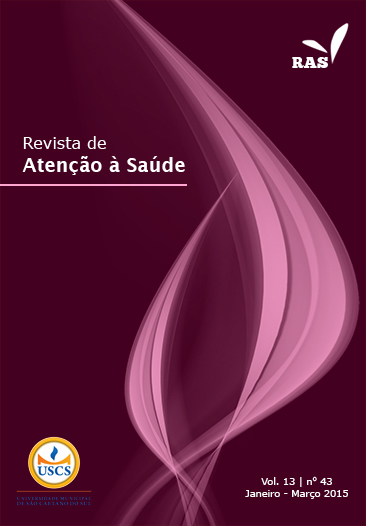The Influence of Flaxseed on the body weight of Wistar Ovarioctomized Rats
DOI:
https://doi.org/10.13037/rbcs.vol13n43.2433Keywords:
NutriçãoAbstract
Objectives: To evaluate the influence of flaxseed for a long period of time and its hormonal effects of weight loss in castrated rats. Methods: We used 21 Wistar rats that underwent bilateral oophorectomy for induction of menopause, randomly divided into three groups: control group (CG) (n = 7), which received a diet based on casein 10 percent; flaxseed group, that received a diet based on casein plus 25 percent of flaxseed (FG) (n = 7); and modified control group, that received a diet based on modified casein 10 percent and with addition of lipid and fibers (CGM) (n = 7). All diets were prepared according to the recommendations of the AIN 93, the animals were kept under controlled temperature (22ºC ±2ºC) and adequate lighting (light/dark cycle of 12 to 12 hours). The animals received food and water (adlibitum). The rats were anesthetized with Thiopentax® for blood collection by cardiac puncture for the determination of 17b-estradiol and collection of tissues (liver, bladder and uterus).Downloads
Downloads
Published
2015-03-16
Issue
Section
ARTIGOS ORIGINAIS
License
Policy Proposal for Journals offering Free Delayed Access
Authors who publish in this magazine agree to the following terms:
- Authors maintain the copyright and grant the journal the right to the first publication, with the work simultaneously licensed under a Creative Commons Attribution License after publication, allowing the sharing of the work with recognition of the authorship of the work and initial publication in this journal.
- Authors are authorized to assume additional contracts separately, for non-exclusive distribution of the version of the work published in this magazine (eg, publishing in institutional repository or as a book chapter), with the acknowledgment of the authorship and initial publication in this journal.
- Authors are allowed and encouraged to publish and distribute their work online (eg in institutional repositories or on their personal page) at any point before or during the editorial process, as this can generate productive changes, as well as increase impact and citation of the published work (See The Effect of Open Access).









